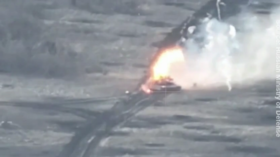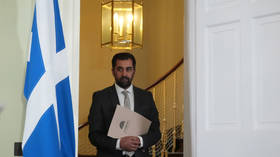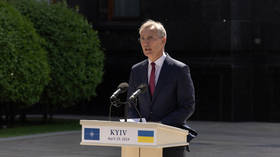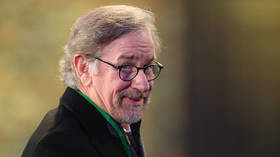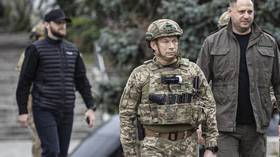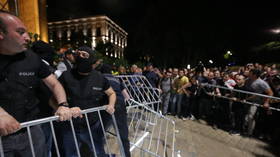‘US mediation made Israeli-Palestinian problem even worse’
The US has been a biased broker in the Israeli-Palestinian peace process and unless Washington changes its flagrant pro-Israeli stance the consequences could be even more devastating, historian and writer Rashid Khalidi told RT.
In his most latest book called ‘Brokers of deceit: How the US has undermined peace in the Middle East’ Professor Khalidi revealed why the talks haven’t seen any breakthrough in recent decades.
RT:You argue that over 30 years the US has used
language to undermine the peace process in the Middle East. You say
that even the phrase ‘peace process’ when spoken by the US
administration has been extremely disingenuous. Why so?
Rashid Khalidi: The term ‘peace process’ itself is an example of what I’m talking about – Orwellian language and saying things that are fundamentally not true. The US brokered the peace treaty between Egypt and Israel. It took a number of years but they got a result. President Carter started working on the so-called Palestinian autonomy in 1978, 35 years ago. So the US has been engaged in the process, there is no question about that, for three-and-a-half decades. It hasn’t produced peace. I argue in my book that they couldn’t have achieved peace. What they were trying to do in essence was to do something that was under a ceiling of what Israel would allow. That didn’t amount to anything that the Palestinians could ever accept – it didn’t really amount to real statehood or real self-determination. So it was a process, which was described as a peace process, but it couldn’t have led to a resolution of this conflict.
RT:Many would argue that it’s in the US interest to create peace in the Middle East. So what is their game?
RK: In the past it’s clear that achieving peace between the major countries like Egypt and Israel was in the US interest, because back in the days of the cold war a clash between the two countries had a potential of a superpower conflict in 1963, for example. Unfortunately on the Palestinian issue there is no body of powerful interest, that is to say ‘You have got to resolve this because it will be harmful in this or that way for the US if you don’t’. There was briefly during the occupation of Iraq, when you had a number of leading strategic figures – the then Secretary of Defense [Robert] Gates, Admiral [Michael] Mullin and General [David] Petraeus – all of them were saying that the US is biased on this issue. But you don’t hear that forcefully argued in Washington. What you do hear forcefully argued is people saying ‘No, no, no, you mustn’t push beyond certain Israeli red lines’. And these people have tended to prevail in the past.
RT:You were saying that the US is acting as so-called lawyers of Israel, not as mediators.
RK: I the book I talked about numerous cases, where this is exactly what happened. And I am not abusing the term, which in fact I didn’t create. It was an American diplomat, who’s been engaged for decades in this – Aaron David Miller – who was calling Secretary of State [Henry] Kissinger so. I think it’s an apt term. In fact the US hasn’t been an honest broker. When I was adviser to the Palestinian negotiators from 1991 to 1993 we saw multiple instances of the US supposedly mediating but in fact being even less forthcoming than the Israelis were themselves. It was less willing to take certain daring moves than the Israelis were at certain points.
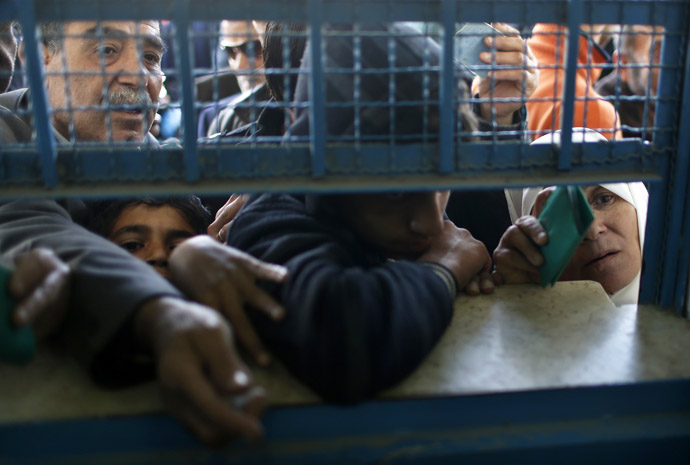
RT:In the past Palestinians had a certain level of confidence in some American presidents. But now they carry deep disappointment in Barack Obama. Why?
RK: A number of US presidents including Barack Obama in the early stages of their presidency have tried to push beyond the envelope of what is accepted in terms of the Israelis will let you get away with basically – what the lobbies will accept, what the Israeli PM won’t fight you over. President [Jimmy] Carter tried, President [Ronald] Regan tried, pPesident [George] Bush Sr. tried, President [Bill] Clinton tried and President Obama tried. But in each case they’ve been rebuffed and they haven’t persisted on what they were trying to do. I think we’ve now reached the point where an interim solution, the Palestinian Authority, which was established back in the mid-1990s, it’s been there for almost 20 years and there hasn’t been any resolution of the conflict. Palestinians have lost confidence not just in this president but in the US.
RT:Does that mean that under Obama nothing will happen?
RK: Four years have been wasted so far. I think that if the US doesn’t change its policy they will not even help resolve this conflict but make it even worse. The US is not just a neutral actor. It’s supporting Israel diplomatically, gives Israel $3 billion every year as assistance, much of which seems to me to be used in ways that are a violation of US law, in ways that aren’t defensive – bombing Gaza for example. And finally, it’s hundreds of millions of dollars of American money that go to the settlement enterprises in the West Bank. This is the American participation in making the settlement less likely. So the US has not only helped to resolve this but made the situation worse.
RT:The US does also give financial help to Palestinians as well.
RK: Correct, to the Palestinian Authority, most of which goes to security forces, which under the agreements that were signed back in the mid-1990s do much more to provide security for Israel and illegal Israeli settlements than they do to provide security for Palestinians. They don’t protect Palestinians when the Israelis carry out an incursion or knock down doors in the middle of the night. What they do is trying to stop Palestinians from resisting or attacking Israelis, who are illegally settling on the occupied territories.
RT:The US has used the corrupt language to manipulate the Israeli-Palestinian truck. Is that the hallmark of the US foreign policy in the entire region or just exclusive to the Israel-Palestinian issue?
RK: I think this kind of language is not exclusive to this conflict or to the US. I can think of many instances. I think that the Arab-Israeli conflict and especially the Palestinian component of it in the core is particularly susceptible to 'mismaking' and to fundamentally false language. Israel is a democratic and a Jewish state, where all kinds of rights are denied to non-Jews. How much can it be democratic? Similarly people talk about Israeli security. The term Israeli security is used to cover things that involve inflicting insecurity on other people. These are the kinds of uses of language that I argue in this conflict are particularly prevalent and are particularly dishonest. I’m sure you can find many other examples in many other conflicts.
RT:Do you believe that the Palestinians are generally interested in breaking the status quo?
RK: The Palestinians suffer more than anybody else in this conflict. There is no question. And so in their overwhelming majority they would love to see this conflict solved. Unfortunately there are Palestinians that profit from this status quo. Associates with the regime in Ramallah and Gaza – these are people, who may be comfortable with this status quo. But they are a very small minority. You just need to go to the occupied territory and see how much people are suffering and how angry they are.
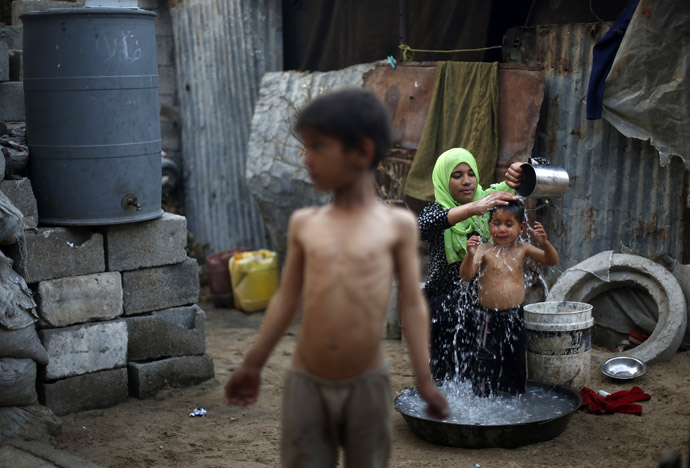
RT:Last year Palestine received an elevated status at
the UN. Do you thing that has helped the Palestinian Authority in
any way?
RK: Unfortunately it hasn’t. It might have, but the way it
was employed has not in any way maximized the opportunities that
were opened to the Palestinians. They could have pushed
aggressively in a variety of UN forums like the International
Criminal Court, or UNESCO or elsewhere to try and stop violations
that in this negotiating process have been ignored for decades.
These things should be brought to somebody that can do something
about them. This elevation of the status should have made that
possible. It has not because the Palestinian Authority hasn’t done
it.
RT:Why haven’t they done it?
RK: For reasons that must have to do with their own internal
calculations. They are dependent to some extent on American support
and therefore they don’t want to alienate the Americans, they are
dependent to some extent on the Israelis’ not stepping all over
them so they are afraid to antagonize the Israelis, or presumably
they are willing to go along with this charade that has been going
on for decades over the so-called peace process. In my view that
was a mistake.
RT:How has the Arab spring effected this peace
process?
RK: I think it hasn’t had that much of an effect though I
think that the situation with the Arab world and the unwillingness
of the mostly undemocratic governments throughout the Arab world
has measurably made this problem harder to resolve. The Arab
governments have really not put their money where their mouth is.
They haven’t really forcefully acted in terms of the Palestine
question. If the Arab countries were seriously interested as they
claimed to be, you would have heard a lot more about the Arab peace
initiative in the many years since it was announced. If Saudi
Arabia, or if Kuwait, or if a major Arab country that has
significant financial resources, wants to make a point about
something and has the means to do that, they haven’t. I would argue
though that the Arab spring has the potential to change things.
Democratic regimes, when and if, they can be established will have
to answer to they own people, and Arab world opinion feels very
strongly about this issue.
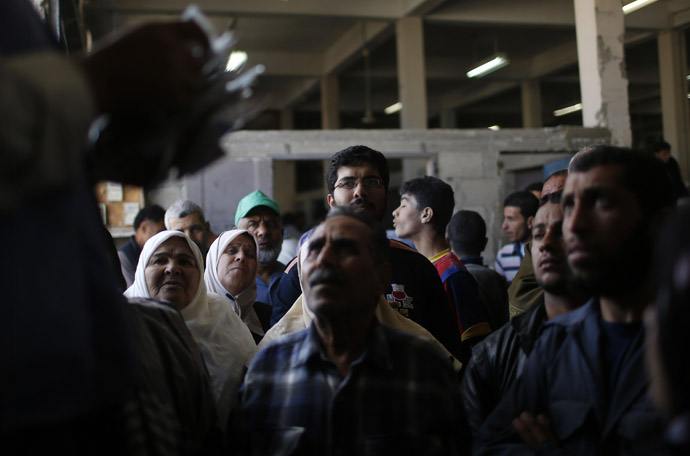
RT:You are not the first and probably not the last to present these arguments in your book. What’s your hope that readers get from it?
RK:I hope that American readers would get an understanding of the fact that they’ve been lied to by the politicians and to some extent by the mainstream American media. There is not peace process and the US is not a force for good in this process. It has made the situation considerably worse over the past three-and-a-half decades. When we went to Madrid in 1991 there were 20,000 Israeli settlers in the occupied territories and there are almost 600,000 now. That’s the result of developments that were allowed to take place and that were supposedly a peace process underway. I would argue that those developments have made the two-state solution impossible. Somebody has to be held accountable for this and a different approach, I think, has to be found. We have yet another administration trying to follow the same approach basically that President Carter negotiated back in 1978 in Camp David. All this should be thrown out of the window. This has to be a process negotiate on the basis of the international law, clear principles and saying ‘we want to get it to this end and we have to do it in this way – not the way it’s been pursued until now’.
RT:If the US remains the main broker, can that happen?
RK: The US is not going to be removed from this process because they are the sole superpower. The US is the 900-pound gorilla on the block. It’s not going anywhere. However, the addition of any other party, almost literally any country on the face of the Earth with the exception of south Pacific islands that vote with the US no matter what with all respect to them - anybody would be a better mediator than the US. The US has shown such a degree of bias and are so closely connected to the Israeli position on so many issues. Here is the massage – is this not a vital interest for Europeans, for Russia, for China, For India? They get the energy from the Middle East. Yes, the US and Russia are energy sufficient, but the countries that get their energy from the Middle East have vital interest in doing something about this. But they’ve done very, very little. I think they must push a lot harder for a little more fairness, little more evenhandedness in mediating this conflict.
The statements, views and opinions expressed in this column are solely those of the author and do not necessarily represent those of RT.


